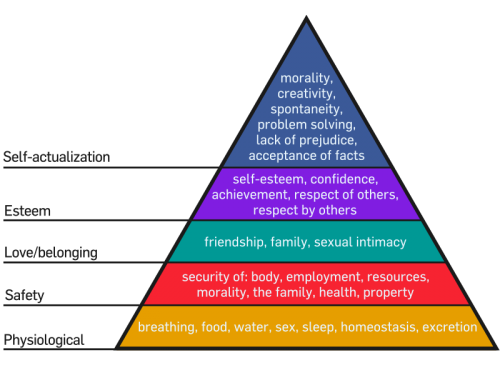Recognition: The Key to Dignity and Self-esteem


Written and verified by the psychologist Valeria Sabater
We all need positive recognition for our qualities and accomplishments. First from ourselves, to validate our own abilities and self-worth, but also from those around us. In children, recognition is the pillar that forms the foundation of self-esteem. In a work setting, it gives employees much-needed motivation. And, in a healthy romantic relationship, it’s the tie that binds the couple and makes both partners feel loved, valued, appreciated…
But the idea of recognition is sometimes misunderstood. Some people view it in a negative light, because some people are constantly looking for positive reinforcement from others. And unfortunately, they’re unable to be emotionally independent. Many people think these types of personalities build their self-esteem only on positive recognition from others.
“Don’t underestimate anyone; even an atom casts a shadow.”
–Pythagoras of Samos-
But the key to all of this is balance. Because you just can’t deny it, recognition plays a key role in our relationships, emotional state, and social life. Moreover, recognition is very closely related to esteem, both self-esteem and being esteemed by others. If you’re familiar with Maslow’s hierarchy of needs, you know esteem plays a very important part. It’s at a subtle point in the pyramid, where self- recognition or the ability to feel confident and competent harmonizes with the importance we give how others view who we are and what we do.

Recognition, a form of social and self-respect
Human beings live in constant duality. We all want to feel acknowledged and seen but also free and independent. That being said, no one likes feeling invisible, ignored, or feeling like no one sees or appreciates them.
Anyone who has been the kid in the back of the class, the kid eating alone in the cafeteria, or the kid sitting alone on the playground knows this fact all too well. The teenager who no one values but who everyone criticizes. Or the person who’s spouse doesn’t value them, who lives in a deep well of loneliness and emotional pain. Recognition is an emotional link between people that makes us feel valued by our peers and dignified as human beings.
To recognize someone is to see them as they are. It’s to acknowledge their presence, to just let them exist, give them the freedom to define themselves. It’s to appreciate someone for who they are and help encourage their personal growth, instead of invalidating them. Recognition creates self-acceptance, which in turn helps strengthen self-esteem.

On the other hand, you can’t forget that how others see you can really affect your self-esteem and self-worth. You simply can’t separate the two. We’re social beings, and what others say or think about us influences us in one way or another.
Recognition is important, but don’t rely on it
Everyone knows that rejection is possibly one of the most painful emotions you can experience. Feeling abandoned or disliked by your peers sets off your internal alarms and hits the panic button. Loneliness and isolation caused by unhealthy, negative, or neglected bonds lead to suffering. However, as already mentioned, we must balance the recognition we receive from others with the recognition we give ourselves.
Balancing recognition
Focusing your life entirely on external positive reinforcement only causes emotional dependency. Therefore, it’s very important that we remember one simple truth. How others see us is greatly influenced by how we see ourselves. Let’s look at a few examples. Employees who are confident in their abilities and who feel skilled and sure of themselves create good work environments. They do well and others usually recognize their good work.
Let’s look at another example. Someone with self-worth, who feels fulfilled, free, and independent often creates solid emotional relationships. That mature and secure personality inspires recognition and admiration, but not dependence. If you’re in this state, there’s no need for constant reinforcement. Nor does your happiness depend solely on whether or not you receive positive recognition. It’s a perfect balance between the value you give yourself and the sincere recognition you receive from others.

In conclusion, we can’t pretend that other people’s opinions don’t affect us. Recognition is the basis of any society for a very simple reason: it brings people together. It lets us really see people, regardless of age, condition, ethnicity, or character. Knowing how to recognize people for who they really are, and not for who we wish them to be, also helps us love intelligently.
Let’s learn to be humble enough, and available enough, to recognize each other. We should both acknowledge our own strengths, as well as other people’s strengths, and see people for who they truly are.
We all need positive recognition for our qualities and accomplishments. First from ourselves, to validate our own abilities and self-worth, but also from those around us. In children, recognition is the pillar that forms the foundation of self-esteem. In a work setting, it gives employees much-needed motivation. And, in a healthy romantic relationship, it’s the tie that binds the couple and makes both partners feel loved, valued, appreciated…
But the idea of recognition is sometimes misunderstood. Some people view it in a negative light, because some people are constantly looking for positive reinforcement from others. And unfortunately, they’re unable to be emotionally independent. Many people think these types of personalities build their self-esteem only on positive recognition from others.
“Don’t underestimate anyone; even an atom casts a shadow.”
–Pythagoras of Samos-
But the key to all of this is balance. Because you just can’t deny it, recognition plays a key role in our relationships, emotional state, and social life. Moreover, recognition is very closely related to esteem, both self-esteem and being esteemed by others. If you’re familiar with Maslow’s hierarchy of needs, you know esteem plays a very important part. It’s at a subtle point in the pyramid, where self- recognition or the ability to feel confident and competent harmonizes with the importance we give how others view who we are and what we do.

Recognition, a form of social and self-respect
Human beings live in constant duality. We all want to feel acknowledged and seen but also free and independent. That being said, no one likes feeling invisible, ignored, or feeling like no one sees or appreciates them.
Anyone who has been the kid in the back of the class, the kid eating alone in the cafeteria, or the kid sitting alone on the playground knows this fact all too well. The teenager who no one values but who everyone criticizes. Or the person who’s spouse doesn’t value them, who lives in a deep well of loneliness and emotional pain. Recognition is an emotional link between people that makes us feel valued by our peers and dignified as human beings.
To recognize someone is to see them as they are. It’s to acknowledge their presence, to just let them exist, give them the freedom to define themselves. It’s to appreciate someone for who they are and help encourage their personal growth, instead of invalidating them. Recognition creates self-acceptance, which in turn helps strengthen self-esteem.

On the other hand, you can’t forget that how others see you can really affect your self-esteem and self-worth. You simply can’t separate the two. We’re social beings, and what others say or think about us influences us in one way or another.
Recognition is important, but don’t rely on it
Everyone knows that rejection is possibly one of the most painful emotions you can experience. Feeling abandoned or disliked by your peers sets off your internal alarms and hits the panic button. Loneliness and isolation caused by unhealthy, negative, or neglected bonds lead to suffering. However, as already mentioned, we must balance the recognition we receive from others with the recognition we give ourselves.
Balancing recognition
Focusing your life entirely on external positive reinforcement only causes emotional dependency. Therefore, it’s very important that we remember one simple truth. How others see us is greatly influenced by how we see ourselves. Let’s look at a few examples. Employees who are confident in their abilities and who feel skilled and sure of themselves create good work environments. They do well and others usually recognize their good work.
Let’s look at another example. Someone with self-worth, who feels fulfilled, free, and independent often creates solid emotional relationships. That mature and secure personality inspires recognition and admiration, but not dependence. If you’re in this state, there’s no need for constant reinforcement. Nor does your happiness depend solely on whether or not you receive positive recognition. It’s a perfect balance between the value you give yourself and the sincere recognition you receive from others.

In conclusion, we can’t pretend that other people’s opinions don’t affect us. Recognition is the basis of any society for a very simple reason: it brings people together. It lets us really see people, regardless of age, condition, ethnicity, or character. Knowing how to recognize people for who they really are, and not for who we wish them to be, also helps us love intelligently.
Let’s learn to be humble enough, and available enough, to recognize each other. We should both acknowledge our own strengths, as well as other people’s strengths, and see people for who they truly are.
This text is provided for informational purposes only and does not replace consultation with a professional. If in doubt, consult your specialist.







